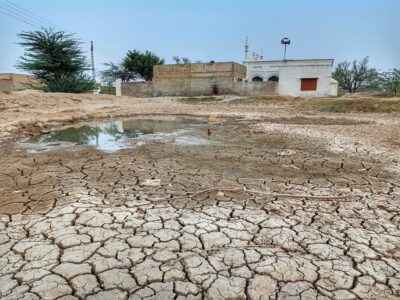
Founded in January 2008, the Columbia Water Center (CWC) is committed to understanding and addressing both the role and scarcity of fresh water in the 21st century. The CWC was established for the purpose of studying the world’s diminishing levels of fresh water and creating innovative sustainable and global solutions. CWC combines multidisciplinary academic research with solutions-based fieldwork to develop and test creative responses to water challenges around the world.
As populations grow and affluence increases, the demand for food and water is on the rise across the world. At the same time, climate variability and change make it difficult to provide water where and when it is needed, and add to the exposure of vulnerable populations to floods. Floods destroy communities in one part of the world, while in another people trek miles every day just to get enough water to survive. Given its pervasiveness and the need for local action, water scarcity is becoming one of the most difficult challenges we need to address in the 21st century.
The Columbia Water Center is researching innovative solutions to these problems— recognizing the public and private sector roles and opportunities, and the unique water, climate and socio-economic settings around the world. Its work stresses analytics at multiple scales, from technologies at the farm level, to new systems-level thinking in the design of urban smart water grids, reservoir and groundwater operations, ecosystems restoration, water-informed agriculture and food procurement, and national and regional water policy. Sophisticated water supply/demand and flood forecasts using climate information, and their integration with financial risk management instruments, are central to the CWC’s work.
In its ten-year report, the Columbia Water Center provides a detailed overview of the past decade of its research projects and impacts on water challenges across the globe, including:
Water Capture System in Koraro, Ethiopia
Villagers of Koraro, Ethiopia and surrounding areas have struggled for years with drought, lack of access to safe drinking water, and serious water-related challenges to agricultural productivity. In 2008, researchers at the Columbia Water Center designed an innovative rainwater harvesting system designed to catch and store water in the landscape. The design included an interconnected network of five microdams along with an infiltration trench system to recharge underground aquifers.
Water, Food, Energy Nexus in Punjab, India
The Columbia Water Center, in collaboration with Centers for International Projects Trust and Punjab Agricultural University, did field research in Central Punjab to study, test and implement practical, rapidly scalable solutions to Punjab’s groundwater depletion crisis.

Assessment of Decentralized Water Systems in Residential Buildings in Mexico City
The Columbia Water Center assessed the design characteristics of rainwater harvesting systems for densely populated areas such as Mexico City.
Delivering Data and Analysis to Inform Flood Response in Southeast Asia
The CWC and Columbia’s International Research Institute for Climate and Society developed a platform that captures flood severity and duration in near real-time, both during and after a disaster.

Envisioning the Future of Water in the United States
Columbia Water Center’s signature initiative, the America’s Water project, collects data on water availability and usage patterns, flooding and drought history, infrastructure vulnerabilities and more for every county in the nation.
Mining and Water Risk: Diagnosis, Benchmarking and Quantitative Analysis of Financial Impacts
CWC recently completed a three-year project sponsored by Norges Bank Investment Management to develop a modeling platform to quantitatively assess mining-related water and environmental risks and their financial implications.



